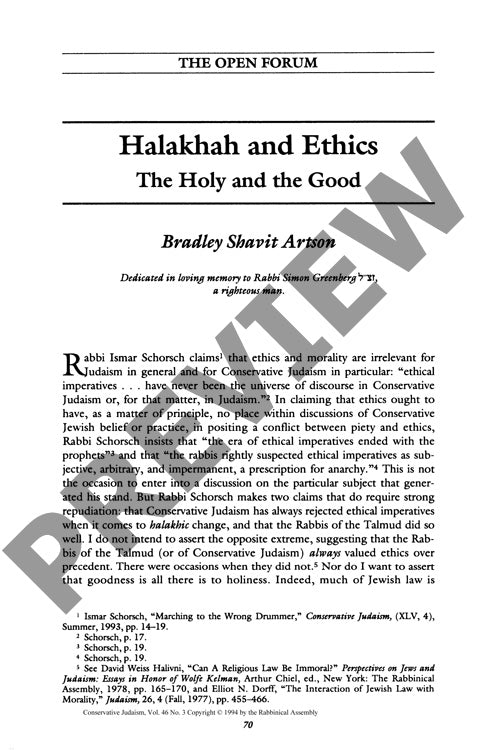Halakhah and Ethics the Holy and the Goo
Couldn't load pickup availability
Ancient rabbis regularly modified biblical laws for ethical reasons, challenging modern claims that Jewish law (halakhah) should operate independently from moral considerations. Through systematic analysis of Talmudic sources and Conservative Jewish writings, clear patterns emerge of ethical principles actively shaping legal interpretation and development across Jewish history. The Tannaim and Amoraim employed ethical categories like *mip'nei darkhei shalom* (promoting peace) and *tikkun ha-olam* (repairing the world) to generate new legislation and transform biblical prohibitions into rabbinic requirements when moral concerns demanded such changes. This historical precedent laid foundations for Conservative Judaism's integration of moral imperatives with traditional practice, as documented from Zecharias Frankel through contemporary Committee on Jewish Law and Standards decisions addressing justice and human dignity. The research methodology combines historical analysis of rabbinic literature, documentation of Conservative Judaism's foundational principles, and philosophical examination of the relationship between holiness and goodness. The evidence demonstrates that separating halakhah from ethics represents a departure from both classical rabbinic tradition and Conservative Jewish principles, supporting the conclusion that authentic holiness cannot be achieved at the expense of justice or through the perpetuation of moral harm.

More Information
-
Physical Description
-
Publication Information
Published 1994
ISBN
-
Publication Credits
Bradley Artson

